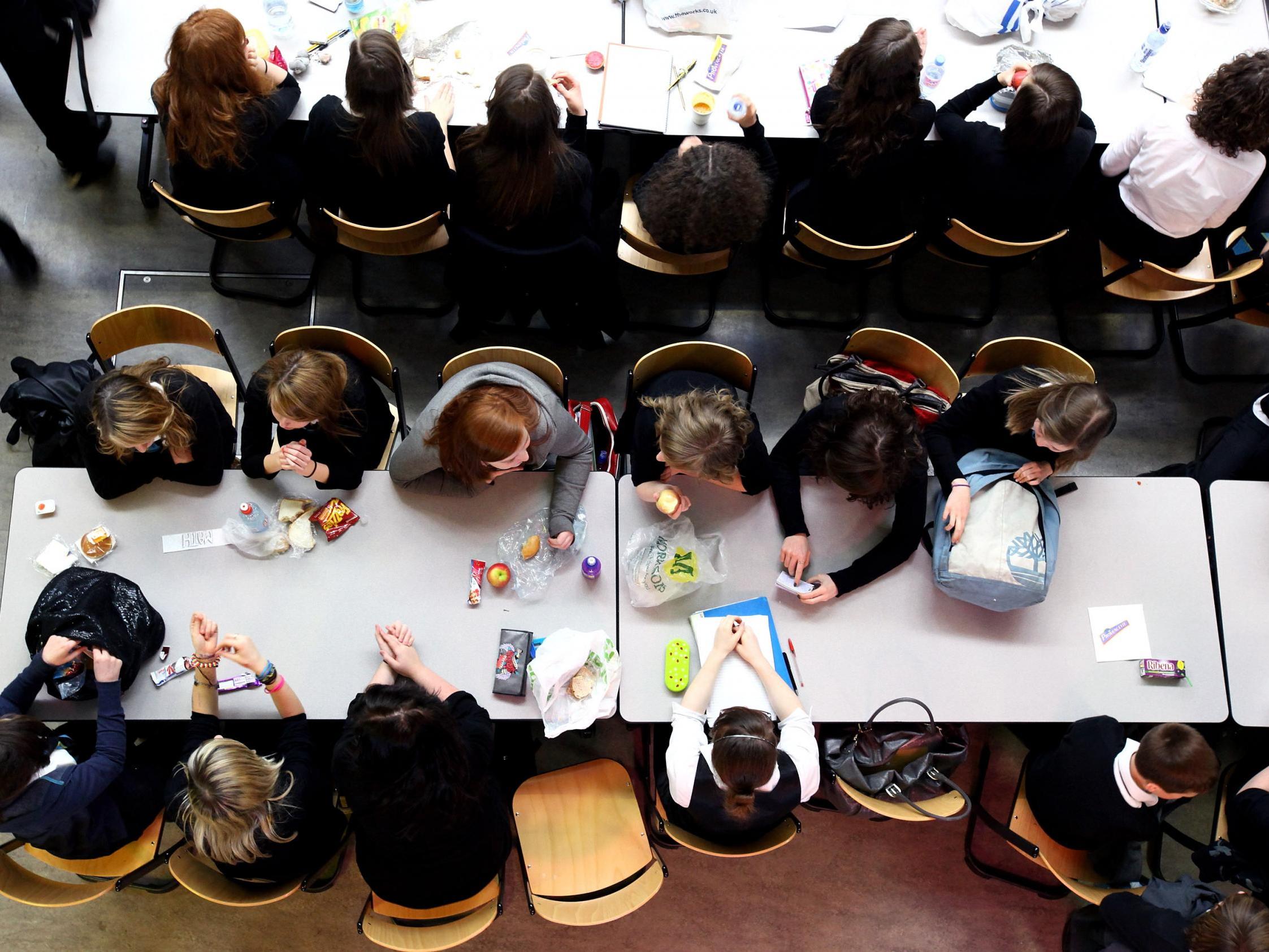Children in low-income families facing ‘hunger and shame’, study finds
‘Sometimes you don’t have enough energy ... You just put your head on the table and you end up falling asleep in the classroom and you get in trouble for it,’ says one child

Children in low-income families are going hungry and experiencing feelings of shame and social exclusion due to lack of money and food, according to new research.
Ministers are facing renewed pressure to lift the benefit freeze after a study by University College London (UCL) revealed some youngsters were surviving on just over £2 a day for food. Others, who come from the most severely deprived families, simply do not eat during the day, the research found.
It comes after government figures last week revealed that the number of children living in absolute poverty across the UK – a figure that had been gradually falling since 2012 – had increased by 200,000 in a year to a total of 3.7 million.
The new research, published in a new book called Living Hand to Mouth? Children and food in low-income families, written by UCL’s Institute of Education, tells the stories of 51 UK children from low-income households and their experiences of food at home, at school and in social settings.
It reveals how some schools restrict the food options they can select, causing embarrassment for children.
One child, Maddy, 16, from inner London, said: “She [lunchtime staff at the checkout] was like ‘You can’t get that, you’re free school meals’ like I was really embarrassed cos people were waiting behind me.
“And it’s like you’re really restricted to what you can eat with free school meals ... So now I just get what I know I’m safe with, so a small baguette and carton of juice.”
The findings also reveal how children whose families have no recourse to public funds – usually because of unresolved immigration status – are not entitled to free school meals, and that while some schools fund lunches for these children, others do not, meaning some youngsters go hungry during the day.
Emmanuel, 14, from inner London, said: “Sometimes you don’t have enough energy, you cannot cope in the classroom so you have to like try and rest a bit. You just put your head on the table and you end up falling asleep in the classroom and you get in trouble for it.”
Just over half (26 of 48) of the children who completed the question in the self-completion questionnaire reported eating vegetables at least five or six times a week, and just over a third (17 of 47) reported eating fruit at least five or six times a week.
Separate research carried out for Child Poverty Action Group (CPAG) last week found that the four-year freeze on children’s benefits alone would lead to average loses of £240 per year for families with children.
Alison Garnham, chief executive of CPAG, which published the book, said: “The young people in this study make the case for universal free school meals more powerfully than anyone else could.
“Their hunger, their shame, their sense of being cut off from learning and social opportunities – all because parents can’t afford enough food – are appalling in a society that believes every child matters.
“Universal free school meals should be part of the solution but wider government action is needed – urgently – to eradicate the poverty that underlies children’s hunger. As a minimum, free school meals should be restored for all families on universal credit.”
Thirty per cent of children are living in relative poverty in the UK, with the number having risen by 500,000 in six years, from 3.6 million in 2010-2012, to 4.1 million in 2016-17.
Ms Garnham said the priority should be to “rebalance family budgets” by lifting the freeze on working and non-working benefits – which has been in place since 2015 – so that they rise again with inflation.
Co-author of the research, Rebecca O’Connell, warned that ahead of Brexit, the implementation of further cuts to welfare benefits and rising inflation – and the plight of families who are struggling to feed themselves – was “unlikely to improve”, and urged that “radical change” was needed.
“In the face of piecemeal responses and government neglect, the outlook is set to remain bleak,” she said.
“To tackle the food poverty of children and families, the government should make use of research on budget standards to ensure that wages and benefits, in combination, are adequate for a socially acceptable standard of living and eating, which recognises the fundamental role of food in health and social inclusion.”
A government spokesperson said: “Tackling poverty will always be a priority for this government. Employment is at a record high, wages are outstripping inflation and absolute poverty is lower than in 2010.
“We’re supporting over 1 million of the country’s most disadvantaged children through free school meals and we continue to spend £95 billion a year on working-age benefits to ensure every child has the best start in life.”
Subscribe to Independent Premium to bookmark this article
Want to bookmark your favourite articles and stories to read or reference later? Start your Independent Premium subscription today.

Join our commenting forum
Join thought-provoking conversations, follow other Independent readers and see their replies